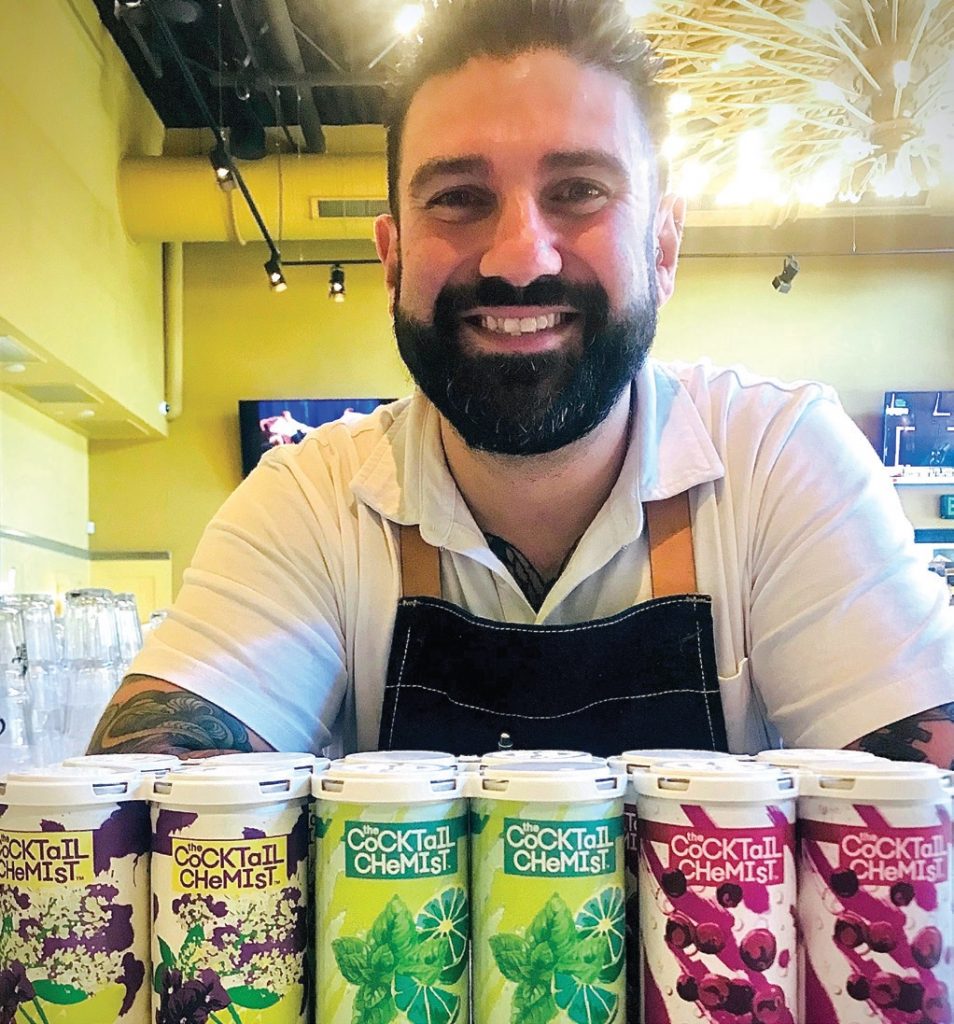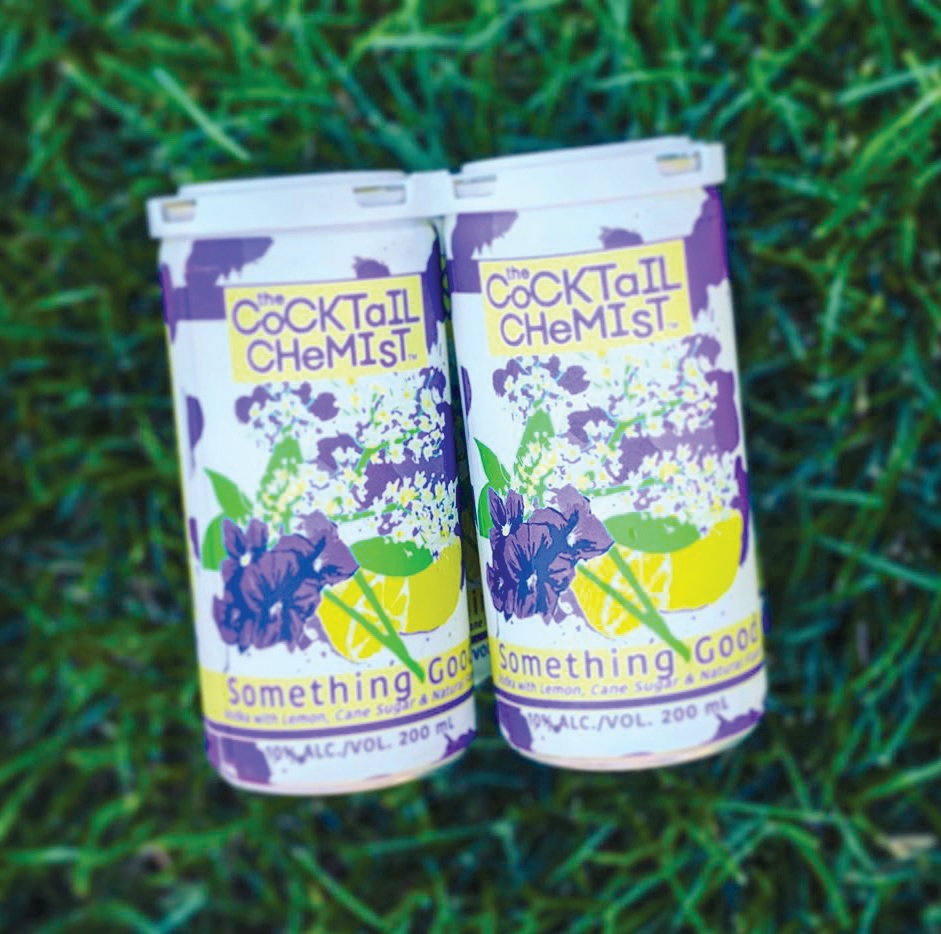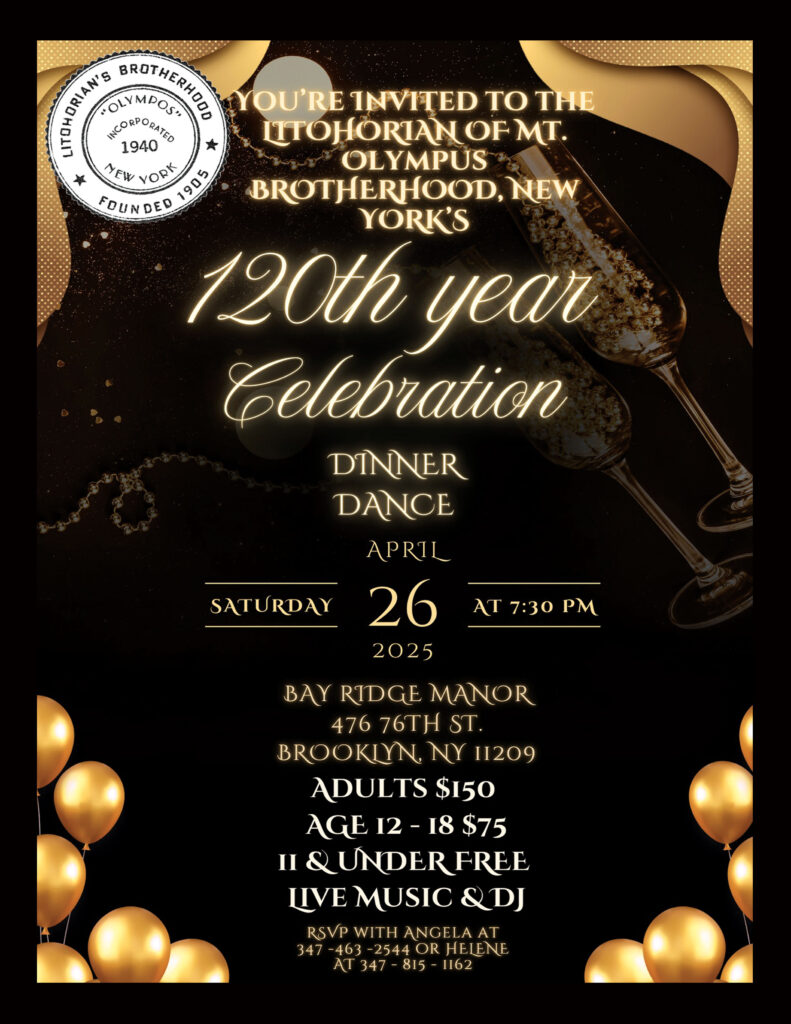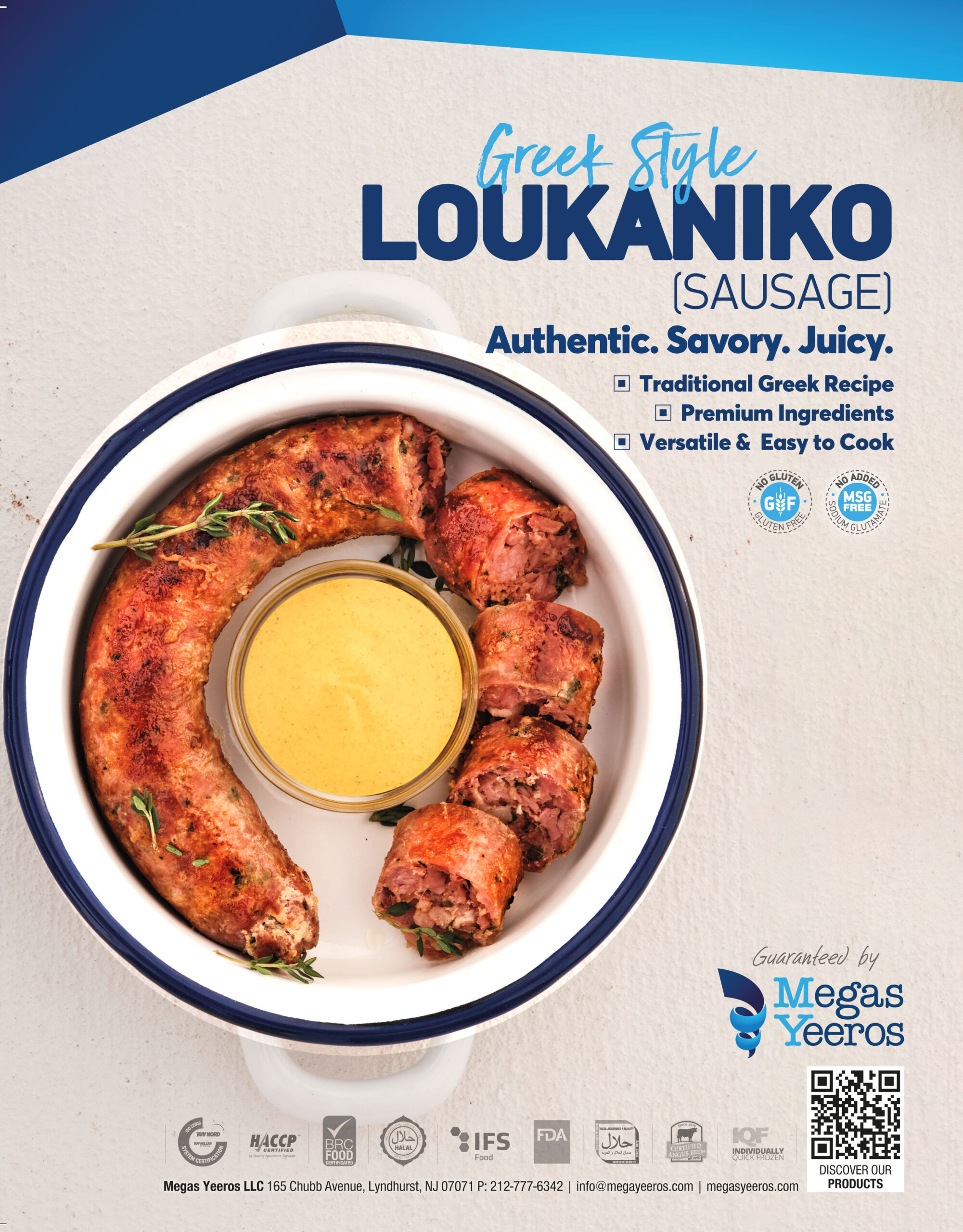Canned Craft Cocktails Coming Your Way
Posted by estiator at 6 September, at 07 : 13 AM Print
A veteran bartender shakes it up with an upstart beverage company.
By Constantine Kolitsas
Dimitris Zahariadis has accomplished just about everything there is to accomplish in his chosen art of mixology: He has bartended at one of the swankiest bars in Manhattan, owned a successful cocktail bar, founded the Connecticut Chapter of the U.S. Bartender’s Guild (USBG), and made a splash on the global stage as an invited guest bartender at some of the most acclaimed bars in Greece (and the world). Now, with the craft cocktail movement being embraced by canned-beverage consumers, he is positioning himself as a player in a nascent market that shows tremendous promise.
Known as “ready-to-drink” beverages, canned cocktails are experiencing a meteoric rise, cutting into beer sales, which have been in decline for the past several years. The success of the segment has (to a significant extent) to do with the coattail effect provided by the rise of craft cocktails over the past decade. And it also has to do with technology—improvements in carbonation processes have enabled the makers of canned cocktails to move away from the malt beverage base that has been the building block for these beverages over the decades (to wit, Smirnoff Ice and the curiously tequila-free Budweiser Lime-a-Rita). The taste profile of those malt-based beverages are decidedly sweet, where the new emerging, lightly carbonated brands taste like true cocktails.
“The ingredients we use in our line of canned cocktails are first-rate,” says Zahariadis, whose company, The Cocktail Chemist, launched its first two beverages (a mojito and a vodka soda splash of cranberry) in early July, with the third (“Something Good,” a vodka drink with fresh lemon, cane sugar, and notes of elderflower and violet) just making it onto shelves as this article goes to press.
Zahariadis’s beverages are sold in 200 ml cans (“a proper cocktail” pour) with an ABV of 10%. “Our cocktails are made with 100% fresh fruit,” he says, indicating that the cranberry he uses is from a local producer in New Haven, CT, located down county from his home in Thomaston. The spirits are from top-line distillers with whom he has built relations in his years as a mixologist and beverage director. “Our vodka drinks are made from 100% American corn vodka, which is gluten-free,” he says, the excitement building in his voice. His mojito, he adds, is made with a proprietary blend of three Caribbean rums.
While the greatest opportunity for the brand is in liquor stores, Zahariadis, who cut his teeth in the restaurant business as a boy in his father’s diners, believes that restaurants can benefit substantially by going the canned-cocktail route.
“If it doesn’t make financial sense for a restaurant or a diner to invest in a fulltime bartender, a canned craft cocktail affords the business the opportunity to serve their guests a firstrate alcoholic beverage that anyone can serve; just open the can and pour it over ice,” he says. “How many diner managers have the time or expertise to make a real mojito?” he continues. “And if you have one manager who makes them great, the others will never make it the same way. The can not only guarantees quality and great flavor, it also guarantees consistency.” Of course, because there is nothing added to the can’s contents other than ice, there is no overpouring, and the liquor cost is consistent with each pour. It’s simple enough for any server to make a great cocktail.
Furthermore, at a time when upscale restaurants are creating their signature craft cocktails, a program linked to fine canned cocktails allows diners and family restaurants to attract customers for whom a craft cocktail is integral to the dining experience.
Zahariadis says that his inspiration for getting into the RTD (ready-to-drink) cocktail market was the dearth of quality products on the market.
“I first began thinking about this about five years ago,” says the 43-year-old. “There were just so many subpar products on the market that I thought if someone comes to the market with a quality product, the demand would be there. I thought there was a void, and I wanted to fill that void.”
Since then, he says, many of his brethren in the mixology space have gotten into the game, with a niche market developed for quality, and often local, products. Asked if a canned cocktail can truly taste as good as a freshly made drink, Zaharadis stakes his reputation on just that assertion. “I would not put a subpar product before you at the bar, and I wouldn’t do that in my cans,” he insists. And with an ABV of 10%, the cocktails from his cans are not weakened. “It’s a stiff drink,” he says. “You can taste the booze.”
As for his timing, Zahariadis is entering the market just as demand is hitting a hockey-stick-shaped inflection point. According to surveying firm Nielsen, RTD cocktails and beverages grew at an 80% rate from April 2019 to April 2020. And if the pandemic is accelerating the growth, that acceleration is not without a strong foundation: Prior to that most recent survey, the segment was experiencing 40% annual growth. Analysts argue that the more recent acceleration is a function of availability—RTD canned alcoholic beverages can now be found in more markets, and in greater variety.
Zahariadis and his competitors also have demographics on their side: Millennials show a proclivity for crafted cocktails over other alcoholic beverage staples. (Beer sales have been in steady decline for the past five years.)
As for The Cocktail Chemist line of RTD cocktails, Zahariadis says that just a month into production, they are available throughout Connecticut through Connecticut Distributors Inc, one of the major liquor distributors in the region. As this issue goes to press, he expects them to be available in Massachusetts, with more states to follow.
“At this point in the company’s existence, we’re looking for distribution partners regionally and, eventually, nationally,” he says. Orders for his cocktails are coming from both liquor stores and restaurants, he explains, with his current production runs being quickly met with demand.
“We’ve got a ramping plan in place to make sure we are always able to meet demand,” he says, intimating that he is also looking to online sales to market directto-consumer in 21 states.
Zahariadis’s passion for mixology was ignited at the age of 19, when he got his first bartending gig. Having grown up in a restaurant family (his father and grandfather had diners and restaurants throughout his childhood), his work ethic and drive were forged in a familiar cauldron of long hours, sweat, and sacrifice. By the early 2000s, his parents had relocated back to Greece and Zahariadis was looking to develop his craft beyond his home turf. The cocktail resurgence was already happening in other parts of the country, so he packed up his belongings and headed to New York City, where he immediately found a job at Tao, one of the city’s most elite restaurants (at the time it was the third-highest-grossing restaurant in the country) and a leader in the Pan-Asian fusion scene.
“In those days, you couldn’t get a job there unless you had two or three years of experience in a Manhattan restaurant,” recalls Zahariadis. “I was lucky; a friend of mine worked there and pushed hard for me to get hired. They finally agreed to give me a tryout shift. Halfway through the shift, they offered me the position,” he says, laughing.
Tao, he says, was a great experience for him. Not only did he hone his craft there (nearly 15 years later, the restaurant still has some of his creations on its cocktail list), but he also got to hobnob with celebrities, movie stars, and athletes.
“When the film A Perfect Stranger was released, they had a party at the restaurant. Bruce Willis was the film’s star, and because he was a bartender before he was an actor, he quickly made me his friend for the night,” he recalls fondly. “He was bringing me around the room introducing me to Tim Robbins, Giovanni Ribisi, and Kevin Pollack like I was his oldest pal.”
When Zahariadis was ready to return home to Connecticut in 2008, it was to open a restaurant in Waterbury with a close childhood friend who had made a reputation as a chef in L.A.’s restaurant scene. The restaurant was the first in the state to have a cocktail program similar to those found in the cosmopolitan centers of the U.S. and Europe.
“Unfortunately our timing wasn’t good,” he says, indicating the financial tsunami that would hit later that year, “and the restaurant was short-lived.”
The experience, however, gave Zahariadis a reputation as one of the state’s premier mixologists, and his talents quickly came in demand as a consultant, beverage director, and brand ambassador for companies like Roots, a Greece-based spirits company. In founding the Connecticut chapter of the USBG, he was instrumental in promoting the craft cocktail movement and developing some of the state’s best bartenders.
His future now, he says, is in the beverage supply chain. The Cocktail Chemist and its line of quality RTD canned craft cocktails is his vision of that future.
















